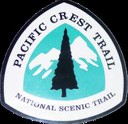I have been using Cheryl Strayed’s memoir Wild: From Lost to Found on the Pacific Crest Trail in my Outdoor and Survival Literature class. I’m not completely convinced of the aesthetic value, but it’s message(s) is noble, engaging, and worthwhile.
the aesthetic value, but it’s message(s) is noble, engaging, and worthwhile.
The universe in which our emotions gather and play never settled into a predictable pattern for Strayed. “I was as searching as I was skeptical…’you’re a seeker,’ my mother had said to me when she was in her last week, lying in bed in the hospital, ‘like me'”(p.134). Strayed finds herself hiking  the Pacific Crest Trail (PCT) in an effort to lose herself, that is, somehow lose the lasting effects of a detached father, being a witness to her emotionally numb mother’s harrowing battle with cancer at age 45 ending in a morphine-laced passing “over the river”, and her own failed relationships, especially with that of her ex-husband Paul.
the Pacific Crest Trail (PCT) in an effort to lose herself, that is, somehow lose the lasting effects of a detached father, being a witness to her emotionally numb mother’s harrowing battle with cancer at age 45 ending in a morphine-laced passing “over the river”, and her own failed relationships, especially with that of her ex-husband Paul.
“I’d come, I realized, to stare that fear down, to stare everything down, really — all that I had done to myself and all that had been done to me”(p. 122). As she hiked the PCT, Strayed went so far as to catalog the pain, anger, shame, and resentment she experienced as a child (p. 265-267).
I hope my students never have to experience the depth of darkness Strayed did prior to her PCT hike, but the reality is, for some (too many, really), the darkness too often dims the light.
Prior to the age of six, Strayed had witnessed her father smashing dinner plates full of food against the wall and threatening to throw all of them, her mother and her two siblings, onto the street naked. Strayed began to understand the need to be “in the driver’s seat” of her own life, as her mother admittedly failed to achieve. Trying to fill a whole in her heart, presumably a wound from her father, Strayed attempted to fill it with the security of a man, any man; when she found someone who loved her and she loved equally, she felt unworthy and the relationship ended in divorce. “I had problems a therapist couldn’t solve; grief that no man in a room could ameliorate”(p.134).
Strayed attempted to eradicate her past through various means like heroin and multiple physical relationships with men. After noticing a guidebook to the PCT at a local store, her interest was piqued; she felt a calling to reach the depths of her guarded soul by hiking some 11,000 miles in the wilderness alone. In many ways Strayed yearned to be alone, a place where she felt she could truly be herself. Being alone on the PCT was different though, she “was alone in (the) world , occupying it in a way (she) never had before…the world (felt) both bigger and smaller…until now, (she) hadn’t truly understood the world’s vastness…until each mile was beheld at walking speed”(p. 119).
interest was piqued; she felt a calling to reach the depths of her guarded soul by hiking some 11,000 miles in the wilderness alone. In many ways Strayed yearned to be alone, a place where she felt she could truly be herself. Being alone on the PCT was different though, she “was alone in (the) world , occupying it in a way (she) never had before…the world (felt) both bigger and smaller…until now, (she) hadn’t truly understood the world’s vastness…until each mile was beheld at walking speed”(p. 119).
By being alone in the world, occupying it in way she had never done before, Strayed discovered a deeper understanding of who she is and the worthiness of her existence. “There were so many other amazing things in this world. They opened up inside of me like a river…I laughed with the joy of it, and the next moment I was crying…I was crying because I was full. Of those fifty-some hard days on the trail and of the 9,760 days that had come before them too”(p.234).
The physical demand and suffering she experienced of hiking the PCT helped Strayed realize that all she “needed to survive could be carried on (her) back. “And, most surprising of all, that (she) could carry it…That (her) complicated life could be made so simple was astounding” (p. 92).
Strayed is more spiritual than she claims. Certainly in order for any of us to achieve a spiritual balance we have to die to ourselves and be resurrected, which is arguably what occurred in Strayed’s experience on the PCT. I suppose that is a completely different post.
For now, however, the most poignant point of this book for readers, especially young readers, is to achieve self-discovery. As Strayed aptly illustrates through her memoir, self-discovery is cleansing, liberating, and empowering. Isn’t it true that part of my job description as an educator is to help students discover their strengths and limitations? In turn, won’t this discovery illuminate the path for each of them as they move forward on the trail of their lives?
I hope I can help my students appreciate that life doesn’t always have to be so complicated and get them to laugh at joys they have never experienced, joys that will help them feel complete as they discover their self-worth and who they were meant to be.
Wild is an extraordinary complex web of emotional and physical struggle which evolves into a beautiful tapestry of emotional and physical triumph.
